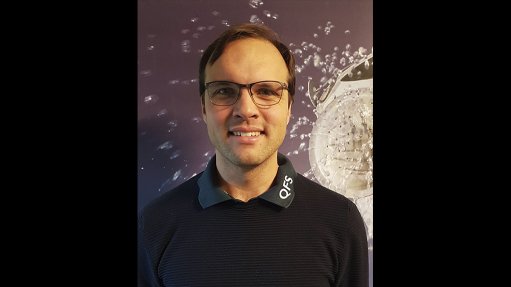
STOPPING THE STENCH Odour control is a process that involves the treatment of odorous gas in heavily built-up areas that have become a nuisance to local residents, who live in the surrounding areas near wastewater treatment plants.
The IFAT Africa 2019 conference is scheduled to be held at the Gallagher convention centre, in Gauteng, from July 9 to 11.
QFS will share an overview of its involvement in various projects in the industrial and municipal sectors. It will also showcase water treatment and odour control technology solutions for the South African water industry.
Odour control involves the treatment of odorous gas in residential areas that are adjacent to wastewater treatment plants.
The process involves the removal of hydrogen sulphide and ammonia gasses that are generated from sewage pumpstations and wastewater treatment works. The technologies used in this process are bio-trickling filters, chemical scrubbers and carbon scrubbers.
Typically, the hydrogen sulphide concentrations at a wastewater treatment plant can reach 100 parts per million, which can lead to harmful conditions for plant workers as individuals may experience apnoea or even die.
QFS process engineer Annejan Visser notes that, through constant consultation with equipment suppliers, QFS can provide odour control solutions that can enhance an organisation’s operations.
QFS, in conjunction with its odour control partner Integrity Municipal Systems (IMS) also offers lime slaking solutions for pH control at water treatment facilities. QFS can offer chlorine scrubber solutions for chlorine gas applications at industrial and municipal sites.
“This scrubber is the only scrubber that has been tested in the catastrophic release of chlorine gas and . . . has removed 99% of all the chlorine gas it received,” says Visser.
He notes that QFS hopes to expand its capabilities to ultimately assist its clients in finding the best and most effective odour control solution. This includes on-site odour assessments and studies with reports to empower clients to make an informed decision.
Project
QFS has been successful in getting technology specified for the Saldanha municipality pump station upgrade for 2019.
The company’s chemical scrubbers have also been specified for the upgrade of a wastewater treatment plant for the City of Cape Town.
QFS also supplied and installed six bio-trickling odour control units for the City of Cape Town as part of a sewer line upgrade in Cape Flats, notes Visser.
The company has assisted in supplying and installing a larger bio-trickling unit to Reeston Wastewater Treatment Works, in the Eastern Cape, as part of Buffalo City’s water treatment expansion project.
“The unique advantage that QFS offers on these bio-trickling filter systems is an added media layer of high capacity carbon to buffer the spikes that come through during this start-up period to ensure effective hydrogen sulphide removal,” says Visser.
Through its exhibition, the company wants to assure current clients that it delivers quality solutions, expertise and service.